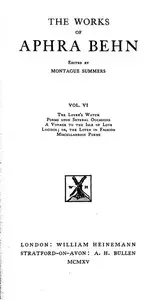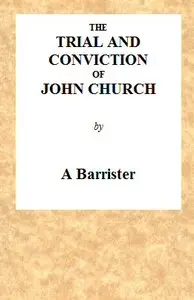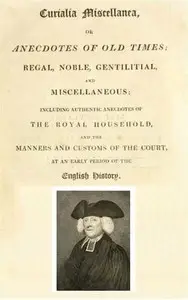"The Works of Aphra Behn, Volume III" by Aphra Behn is a compilation of amusing plays from the late 1600s when theaters in England were becoming more prominent. This collection features works such as "The Town-Fop," which explores themes of love, lies, and social expectations. The story mainly centers on characters caught up in complicated romances, especially Sir Timothy Tawdrey, who is engaged to marry the beautiful Celinda, who is secretly in love with Bellmour, making their romantic situation even more difficult. The beginning introduces Sir Timothy Tawdrey, a conceited knight who wants to marry Celinda for her money, even though she loves Bellmour. We find out that Sir Timothy is seen as a silly man, and he doesn't care for serious dating, preferring the shallow joys of London life. At the same time, Celinda longs for Bellmour, increasing the tension as she tries to manage her feelings while Sir Timothy awkwardly tries to win her over. This creates an entertaining atmosphere full of funny mistakes, friendships, and romantic struggles, pulling readers into a comical story of love and social mockery.

The Works of Aphra Behn, Volume III
By Aphra Behn
In a world of social expectations and romantic entanglements, a conceited knight's pursuit of wealth clashes with true love, leading to a hilarious web of deception and misunderstandings.
Summary
About the AuthorAphra Behn was an English playwright, poet, prose writer and translator from the Restoration era. As one of the first English women to earn her living by her writing, she broke cultural barriers and served as a literary role model for later generations of women authors. Rising from obscurity, she came to the notice of Charles II, who employed her as a spy in Antwerp. Upon her return to London and a probable brief stay in debtors' prison, she began writing for the stage. She belonged to a coterie of poets and famous libertines such as John Wilmot, Lord Rochester. Behn wrote under the pastoral pseudonym Astrea. During the turbulent political times of the Exclusion Crisis, she wrote an epilogue and prologue that brought her legal trouble; she thereafter devoted most of her writing to prose genres and translations. A staunch supporter of the Stuart line, Behn declined an invitation from Bishop Burnet to write a welcoming poem to the new king William III. She died shortly after.
Aphra Behn was an English playwright, poet, prose writer and translator from the Restoration era. As one of the first English women to earn her living by her writing, she broke cultural barriers and served as a literary role model for later generations of women authors. Rising from obscurity, she came to the notice of Charles II, who employed her as a spy in Antwerp. Upon her return to London and a probable brief stay in debtors' prison, she began writing for the stage. She belonged to a coterie of poets and famous libertines such as John Wilmot, Lord Rochester. Behn wrote under the pastoral pseudonym Astrea. During the turbulent political times of the Exclusion Crisis, she wrote an epilogue and prologue that brought her legal trouble; she thereafter devoted most of her writing to prose genres and translations. A staunch supporter of the Stuart line, Behn declined an invitation from Bishop Burnet to write a welcoming poem to the new king William III. She died shortly after.















